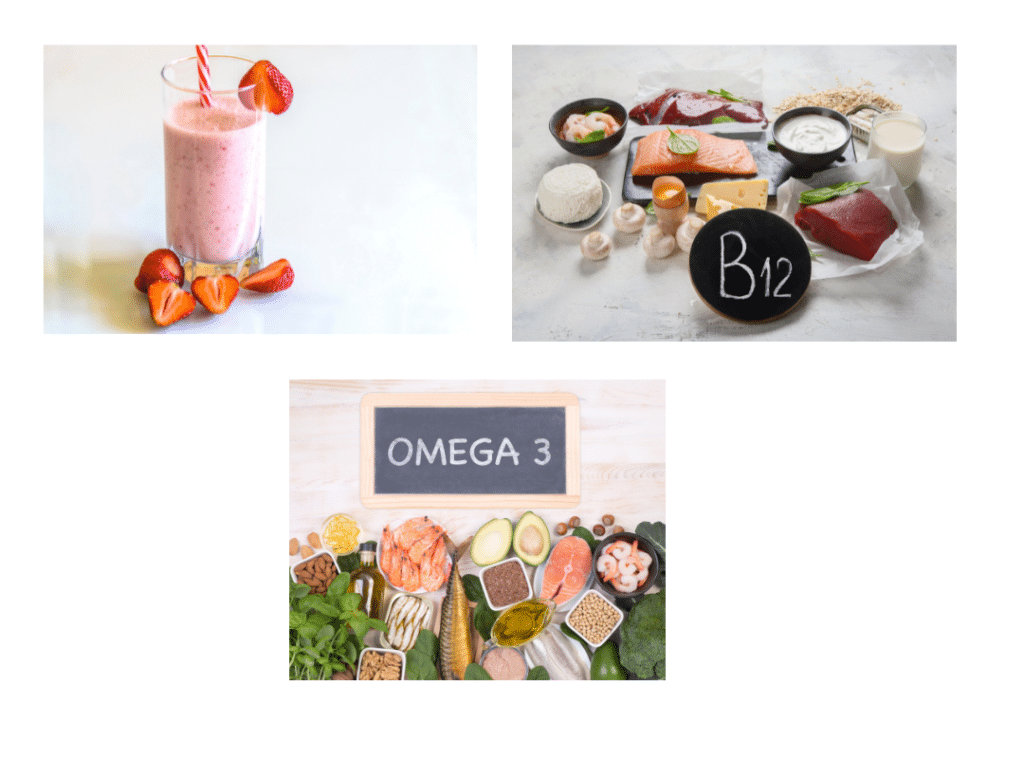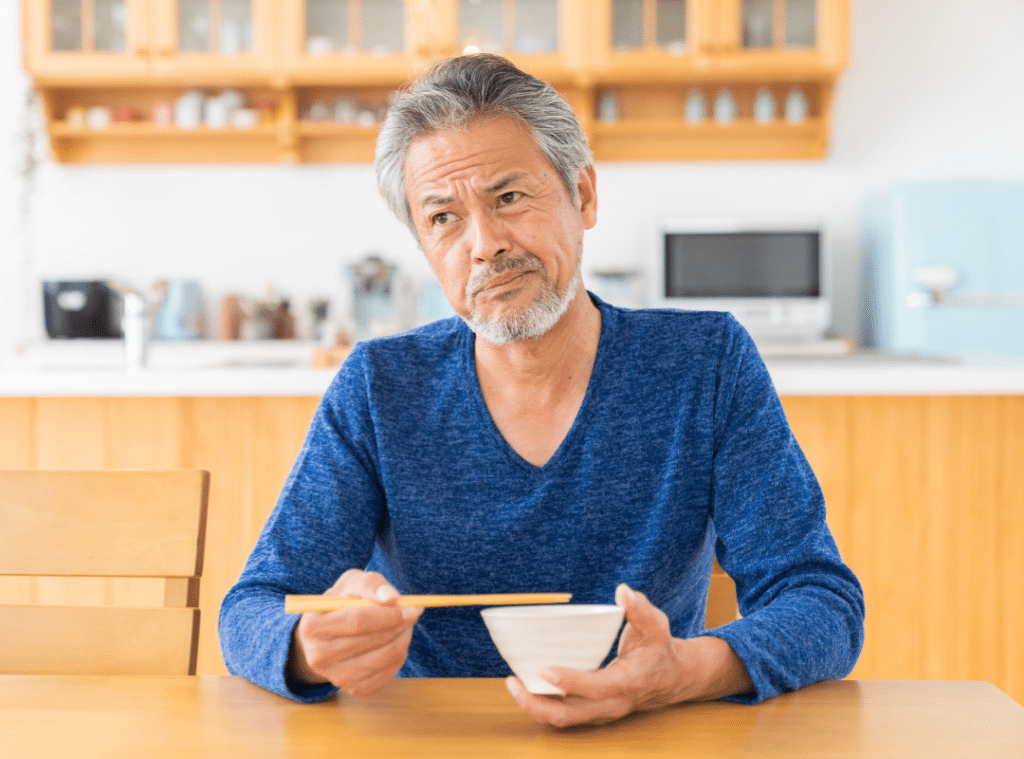When your aging loved one loses interest in food, it can be alarming and emotionally difficult. Whether it’s due to health conditions, medications, or simply aging itself, the decline in appetite is a common issue many families face. That’s why finding the right food for the elderly with no appetite is so important.
At Oceanview Senior Living, we focus on enhancing nutrition with care, creativity, and compassion. By offering gentle guidance, encouraging nourishing meals, and creating a supportive dining atmosphere, you can help your loved one enjoy food again and improve their overall quality of life.
Causes of Loss of Appetite in the Elderly
As adults age, their appetite can decrease due to various factors. Medical conditions such as cancer, dementia, diabetes, or heart disease can suppress hunger. Likewise, medications—particularly those with side effects like dry mouth or nausea—can diminish interest in meals. Emotional issues like loneliness or depression are also frequent contributors.
It’s important to consider whether an elderly person not eating and sleeping all the time may be suffering from underlying issues. Fatigue and disinterest in food often signal a more significant health concern that needs to be addressed by professionals.
Poor oral health, dental issues, or problems with swallowing can further complicate eating habits. Regular dental check-ups and medical evaluations can help pinpoint the cause, ensuring effective solutions are put into place before malnutrition occurs.
Nutrient-Dense Food Suggestions
When crafting meals for seniors, it’s crucial to emphasize nutrition, comfort, and ease of consumption. Some excellent food for the elderly with no appetite includes:
- Smoothies made with fruits, spinach, yogurt, or protein powders
- Oatmeal enriched with nut butter or chia seeds
- Mashed sweet potatoes or pureed vegetables
- Scrambled eggs with soft cheese
- Broth-based soups with finely chopped or blended ingredients
These options provide essential nutrients without overwhelming the senses. Flavor is just as important as nutrition, so adding herbs like basil or rosemary can make meals more enjoyable. Nutrient-dense snacks like hummus with soft pita, full-fat yogurt, or peanut butter on whole-grain toast can also be excellent between meals.
In severe cases, families can turn to strategies to combat malnutrition and consult with dietitians or senior care providers to develop tailored meal plans.
Strategies to Enhance Appetite and Eating Experience
Small changes can make a significant impact when trying to increase appetite in the elderly naturally. Start by establishing routine mealtimes to trigger the body’s hunger cues. Gentle exercises like walking or stretching can also boost metabolism and prompt the need to refuel.
Here are a few tricks to stimulate appetite in the elderly:
- Serve meals in visually appealing portions on colorful plates
- Use soft background music and cozy lighting to create a relaxing ambiance
- Involve seniors in meal planning or prep to increase engagement
- Offer meals in smaller portions throughout the day instead of three large meals
Make the dining experience a social event whenever possible. Sharing meals with family or friends encourages better food intake. Personalized nutritional plans ensure that each individual receives meals catered to their health needs and taste preferences.
Supplements and Appetite Enhancement Techniques
While food should always be the first source of nutrition, supplements to increase appetite in the elderly can provide necessary support when meals alone aren’t sufficient.
Some commonly recommended supplements include:
- Protein shakes with added vitamins and minerals
- Vitamin B12 to support energy and cognitive function
- Omega-3 fatty acids for brain and cardiovascular health
These options can fill nutritional gaps and stimulate hunger. However, any supplement plan should be discussed with a medical provider to ensure compatibility with medications or existing conditions.
Natural appetite stimulants such as ginger, peppermint tea, and lemon can also awaken the senses. For individuals who prefer alternatives to pharmaceutical aids, safe appetite boosters like herbal supplements may offer a more holistic solution.
Helpful resources for supplement ideas and diet strategies include:

How to Help When a Senior Isn’t Eating
If you notice an elderly person not eating and sleeping all the time, it’s time to take action. Begin with a conversation and express concern without judgment. Offer small snacks instead of full meals, and let them eat at their own pace. Ensure they stay hydrated, as dehydration can also suppress appetite.
This may also be a sign of mental health struggles, such as depression. Encourage engagement with a counselor or support group, and consider introducing joyful activities like gardening, music, or pet therapy to uplift their mood.
Tracking food intake and behaviors with a journal can reveal patterns. If symptoms persist, consult a geriatrician or primary care physician for a comprehensive evaluation.
Importance of Care and Support in Senior Living
Communities like Oceanview Senior Living provide environments tailored to seniors’ needs. With trained caregivers, structured dining programs, and engaging social events, seniors receive the support they need to thrive physically and emotionally.
Lifestyle assessments and regular health checkups make it easier to adjust care plans as needs evolve. Professional chefs and dietitians offer variety, flavor, and balance in every dish. This encourages eating and prevents conditions like frailty or muscle loss, which often result from undernourishment.
Participating in shared meal prep or group dining can restore joy in eating and bring seniors closer together. These programs are supported by initiatives like healthy meal planning tips, offering convenient strategies that promote independence and health.
Empower Healthy Eating in Your Loved One
Supporting an older adult through appetite challenges doesn’t have to feel overwhelming. By focusing on the right food for the elderly with no appetite, using supplements to increase appetite in the elderly, and exploring creative tricks to stimulate appetite in the elderly, you can make a difference. Whether it’s adjusting routines, engaging the senses, or getting professional support, your proactive approach can transform mealtimes into a source of comfort and nourishment.
Let Oceanview Senior Living be your partner in this journey. Explore our services, schedule a visit, or simply learn more by calling 541-574-0550 or visiting this link. Together, we can reignite the joy of food—one meal at a time.
How Do The Costs Of Moving Into A Quality Senior Care Community Compare With The Costs Of Staying At Home?Compare The Costs of Senior Living vs Staying at Home
Frequently Asked Questions
What foods increase appetite in the elderly?
Foods that are nutrient-dense, flavorful, and easy to eat can help increase appetite in the elderly. Examples include healthy fats like avocados, full-fat dairy products, and soft protein sources like scrambled eggs or chicken soup. Finger foods such as cheese cubes, crackers with hummus, and fruit slices can also stimulate interest in eating. Including herbs and spices like ginger, cinnamon, or basil may naturally boost appetite as well.
What are five foods that seniors should eat?
Seniors should eat a variety of foods that support overall health, energy, and digestion. Five great options include leafy greens (like spinach), fatty fish (like salmon), whole grains (like oats), berries (rich in antioxidants), and Greek yogurt (for protein and probiotics). These foods promote heart health, brain function, and gut health. A well-rounded diet including these staples helps prevent nutritional deficiencies and supports healthy aging.
What is the best appetite enhancer for seniors?
The best appetite enhancers for seniors vary depending on individual health conditions, but natural methods are often preferred. Nutritional drinks like Ensure or Boost are popular for adding calories and nutrients when appetite is low. Some seniors may benefit from doctor-approved appetite stimulants such as megestrol acetate, but these should be used with caution. Encouraging regular mealtimes, social dining, and light physical activity can also naturally improve appetite.
What foods help increase appetite?
Foods that are rich in flavor, appealing in texture, and visually attractive can help increase appetite. Examples include broths, stews, mashed potatoes, soft fruits, and flavorful pastas. Small, frequent meals and snacks that combine protein, healthy fats, and carbohydrates can be easier to manage and more enticing. Adding herbs and spices or offering a favorite dessert occasionally may also spark interest in eating.








